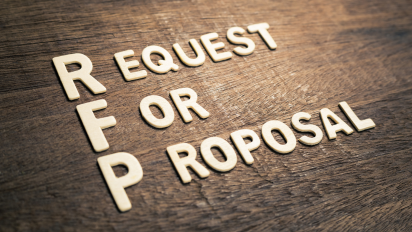The Latest

| min read
This month, we’ve taken a deeper dive on nonprofit RFPs, outlining a comprehensive checklist and ways to provide your data to ensure that you’re setting yourself up for success to identify the perfect agency for you.
And we know the quest to find the right marketing agency can often feel like searching for a needle in a haystack. With countless agencies vying for your attention, navigating the RFP process can be both exciting and daunting. That’s why it’s essential to understand the realities of RFPs from the perspective of the agencies you’re engaging with, as these fruitful partnerships can significantly impact the success of your future projects and goals.
Here’s three things to be aware of as you develop your RFP process.
- Respect agencies’ time and resources: When crafting an RFP, it’s vital to recognize the substantial investment of time and resources that agencies dedicate to developing thoughtful proposals. Behind every compelling proposal you receive lies countless hours of brainstorming, market research, and personalized strategies to meet your organization’s unique needs. Given this, be mindful of agencies’ bandwidth and avoid inviting them to pitch as a “courtesy” if they have little chance of winning your business. Instead, be transparent about your intentions and only invite agencies that you genuinely believe are a good fit. One way you can do this is by pre-qualifying potential candidates based on their expertise, experience, and alignment with your organization’s mission and values. By respecting agencies’ time and efforts, you’ll not only foster goodwill, but also streamline your selection process since you’ll be receiving higher quality proposals from agencies who are truly invested in your cause.
- Provide clear guidelines and expectations: Effective communication is key to a successful RFP process. Clearly outline your organization’s objectives, expectations, and timelines to all participating agencies. This will ensure agencies understand what is required of them and help make your RFP process more efficient. Additionally, create a culture of transparency and openness by having a key contact person who agencies can easily connect with throughout the RFP process for updates and clarifications. This will not only allow agencies to better understand your needs and tailor their proposals accordingly, but also help you lay the groundwork for a collaborative and mutually beneficial partnership that will drive more impactful and innovative results for your organization.
- Offer constructive feedback and follow-up: Once the RFP process is complete and a decision has been made, it’s essential to provide constructive feedback to all participating agencies, regardless of the outcome. Feedback helps agencies understand why they may not have been selected and provides valuable insights for improving future proposals. Furthermore, don’t underestimate the power of fostering relationships with agencies, even if they weren’t selected for the current project. Building a network of trusted partners can lead to valuable collaborations and opportunities down the line. Keep the lines of communication open and maintain a positive rapport with agencies, as you never know when their expertise and insights may be needed in the future.
By understanding and respecting the realities of the RFP process from the agency’s perspective, you can streamline your RFP process, receive higher quality tailored proposals, and cultivate lasting partnerships with marketing agencies.




